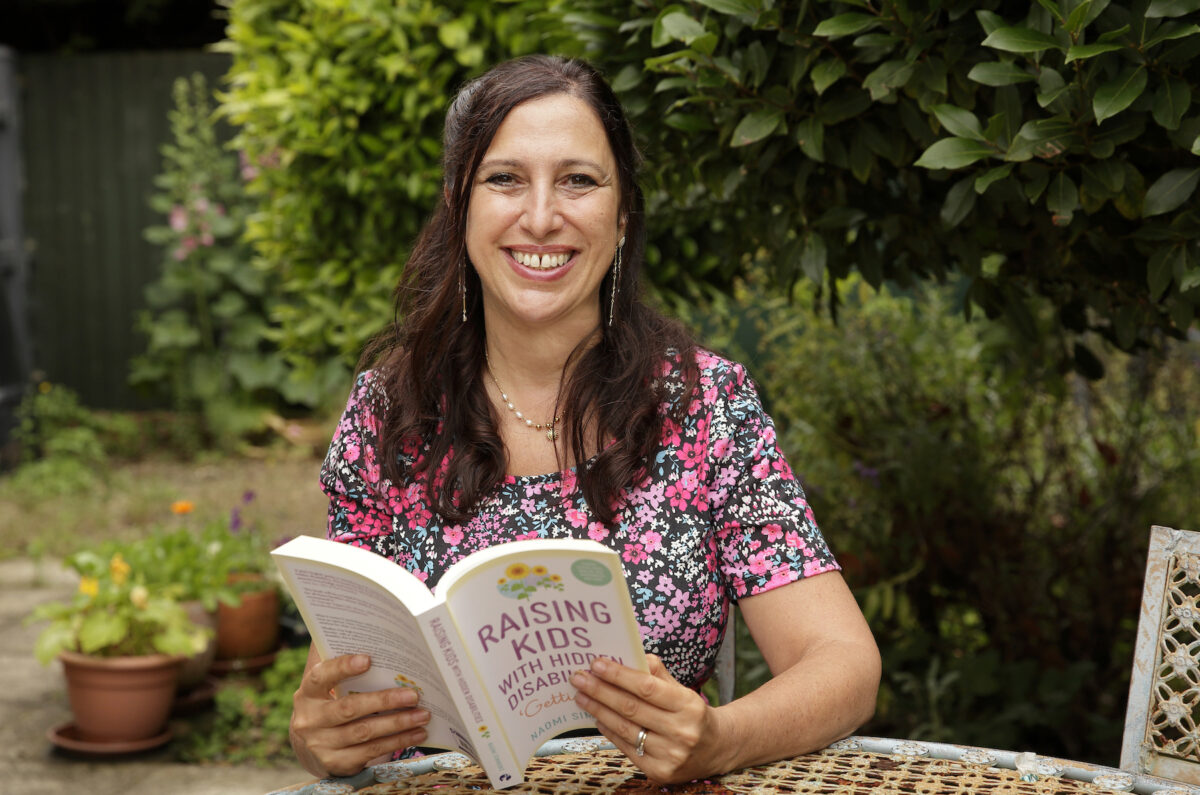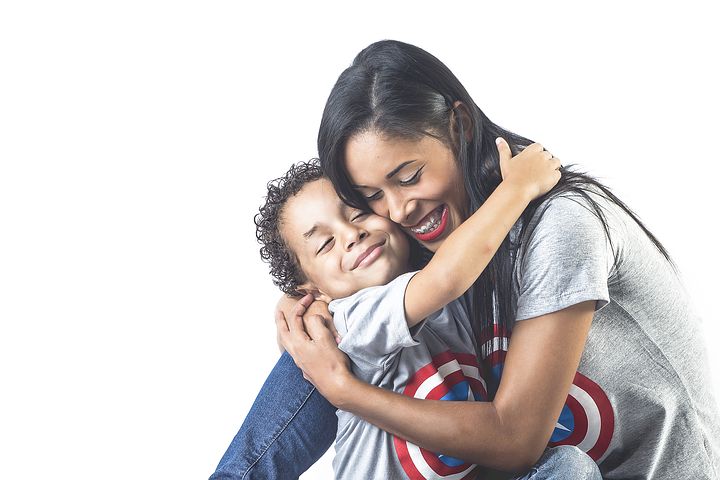By Naomi Simmons
Can we be happy and have a great life, even when our children are on the autism spectrum, have ADHD, a mood disorder or other hidden disability? I strongly believes that the answer is YES!!
How to be at peace even if our child is not at peace is quite a challenge. We are conditioned to believe that we are responsible for our children’s happiness.
You will have heard the saying, “We can only be as happy as our most unhappy child.”
This may be true if your kid is going through a rough patch, the idea being that once you sort out your child’s problem you can be happy again. But for us this idea is disastrous! Our children’s problems cannot be simply ‘fixed’. They are not like a virus that our kid will get over, so that happy life can resume. Our children have serious, ongoing disabilities that may involve them being unhappy, anxious or angry for much of the time.
If we match their unhappiness with our own, as well as living pretty rubbish lives ourselves, we are unlikely to be very effective as parents or much fun as spouses or friends.
We are probably trying to do everything ‘right’: being loving, supportive and consistent parents; but our loved one is still seriously depressed, anxious, having meltdowns, is aggressive or cannot settle or study.
We may feel pretty much like failures and pretty bad about ourselves. If our loved ones are in pain, whether it is emotional or physical pain, as caring parents, we are likely to feel their pain too. We may feel that pain as much as they do, maybe even more. We may also feel annoyed that our child’s hidden disability is ruining all the dreams of the family life we hoped to have, all our hopes and plans for the future.
For me at least, parenting children with hidden disabilities was a push/pull of intense love and intense resentment! And did I feel guilty about the resentment! We can add to this all the criticism and judgement we may be receiving from others, plus the ongoing fights that may be needed to access educational and medical support for our loved ones, along with the benefits that they are entitled to. Sometimes the fighting for help is in itself is a full time job.
It is not surprising at all that a happy, peaceful and great life seems crazily out of reach when our child has a hidden disability.
About 90% of postings on the forums are of parents at breaking point, venting their pain and frustrations in the hope that letting of this steam will help them feel better. Other parents, although they so want to help, tend to have little to offer other than pointing out that they are also feeling desperate and that feeling desperate is normal when caring for a child with a hidden disability.
Our pain is real. Research has shown that autism mothers have the same levels of stress hormones in their body as combat soldiers. Yes, read that again. We have combat stress! And there is no reason to believe that this is any different if your child has any other hidden disability.
So What Do We Do?
Clearly we want to help our kids as best we can. But to be effective at this, and find a way to live a happy and peaceful life, we have to give priority to treating our own combat stress as a priority!
We know that when we get on an airplane we are asked to put our own life jacket on before putting on our child’s life jacket. We cannot help our child if we are drowning.
And it certainly feels like we are drowning much of the time, trying to catch our breath with all the battles we need to fight, the appointment we have to go to, plus managing our child’s needs, along with the rest of the family, plus earning a living.
We have all heard puerile advice about self care, such as people telling us to ‘just chill’ or to ‘get a manicure’. This can feel very patronising when we are at breaking point.
So how to we get from breaking point to being happy, peaceful and calm?
We can use our situation as an opportunity for growth. It is a time to learn more about ourselves. We can learn about what triggers us and how much we are affected by the opinions and judgements of other people. We can learn to be stronger and more accepting of ourselves and our loved ones. We can learn to be more compassionate, less judgemental and less reactive.
Although we can not change other people, we can absolutely change how re react to the challenges we facing.
If we learn these things, which we absolutely can, we can find peace and happiness for ourselves, regardless of what is or isn’t happening with our child or how supportive other people are or are not being. And when we get things wrong, which even the best parents will, we can learn from this too and our mistakes can make us even better role models for our children.
Finding calm, peace and happiness will also make you a stronger advocate for your and your child’s rights.
Parenting is about showing our children the way. So as we grow and find peace for ourselves, learning from our mistakes and accepting our strengths and limitations, we are teaching our children to do the same. No matter how big our challenges are, our children’s challenges are worse, as they are the ones with the hidden disabilities.
To lead a happy and peaceful life, they are going to need to learn to love and accept themselves, recognise their challenges, strengths and gifts, just as we are with ours. They will learn that it is OK to make mistakes, that we can learn from them and find out more about our needs. Ultimately we are in this together. We are all perfectly imperfect humans, doing the best we can with the resources we have.
Please join us for free tips and support! As a thank you we will send you an exclusive preview from the Getting It: Parenting Kids with Hidden Disabilities, to be published in late 2021.

